European Court of Human Rights denies lesbian woman right to paternity leave
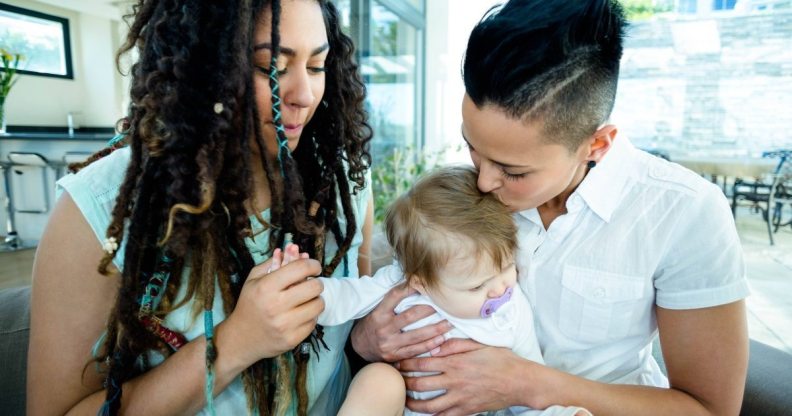
The European Court of Human Rights has ruled that a lesbian woman should not have been given paternity leave after her partner gave birth to their child.
The top European court denied that the French woman should have been given paternity leave because of her relationship with the child.

A French woman brought forward the case after she was denied 11 days of paid paternity leave in 2004 when her son was born.
They argued that Article 14 and Article 8 of the European Convention on Human Rights had been violated.
Article 8 of the convention provides a right to respect “private and family life, home and correspondence”.
Article 14 refers to all of the articles in the act, in that all of the freedoms and rights set out within it must be protected and applied without discrimination.
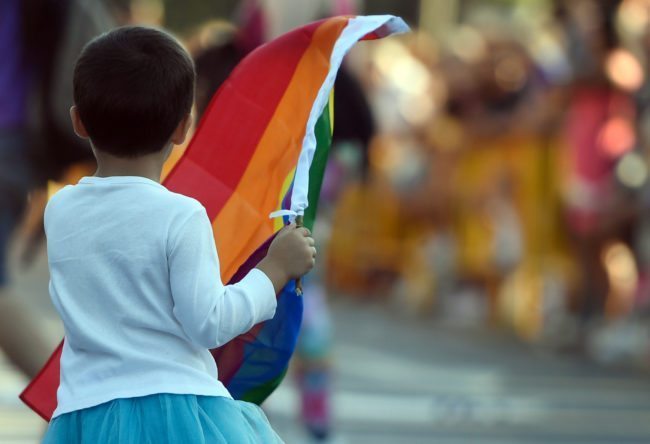
(Photo by CURTO DE LA TORRE/AFP/Getty Images)
The paternity leave was denied because the woman was not the “father” of the child.
The court upheld the decision of her employer because her interpretation of “paternity” was “manifestly ill-founded”.
The statement issued by the court stated that the term paternity needed to be protected to ensure that there was equality between men and women.
They also stressed that it was important “to allow fathers to play a greater role in their children’s upbringing” and so the wording was “designed” in a way to protect this.
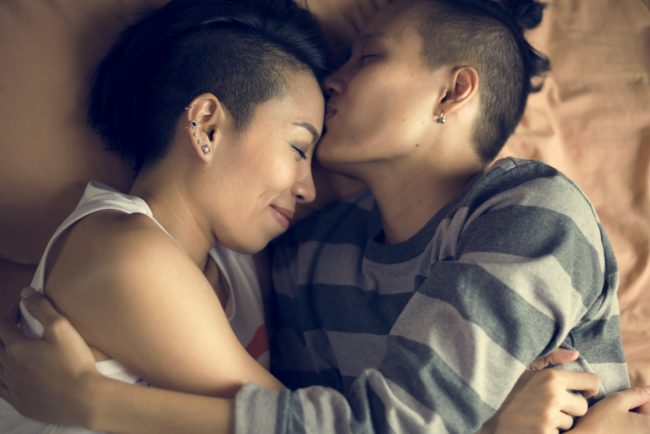
LGBT Lesbian Couple (Photo: rawpixel)
“Furthermore, the difference in treatment had not been based on sex or sexual orientation since, in a different-sex couple, the mother’s partner would not be eligible for paternity leave either if he was not the child’s father,” judges said in their decision.
Since the case occurred in 2004, laws surrounding parental rights for same-sex couples in France has changed.
In 2012, an amendment was made which permitted “carer’s leave”.
The change gives same-sex parents the same rights as those who take paternity leave, however, it is not exclusively limited to a mother or father.
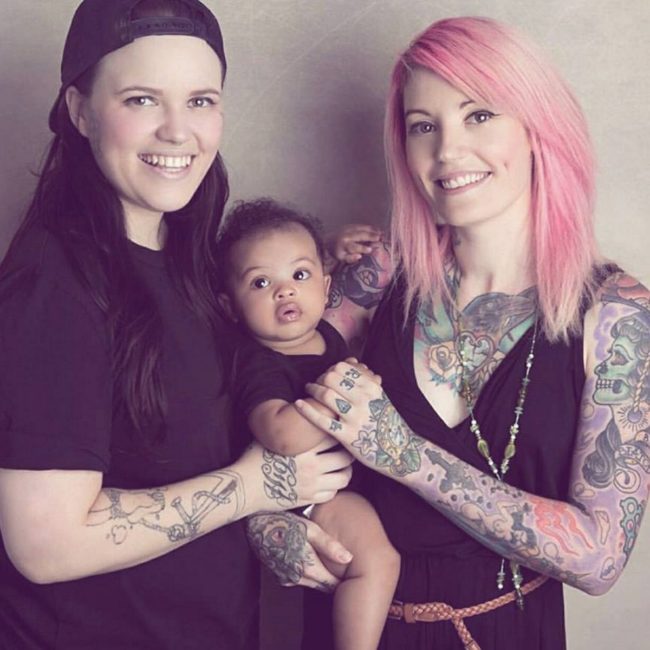
Explaining the reason for the ruling, a judge insisted that it was not grounded in discrimination because in any case paternity leave would only be granted to the biological father of the child.
“Furthermore, the difference in treatment had not been based on sex or sexual orientation since, in a different-sex couple, the mother’s partner would not be eligible for paternity leave either if he was not the child’s father,” the judges added.
The study was published in the Medical Journal of Australia to dismantle a key argument of Australia’s anti-marriage equality campaign that children require both a mother and a father to succeed.
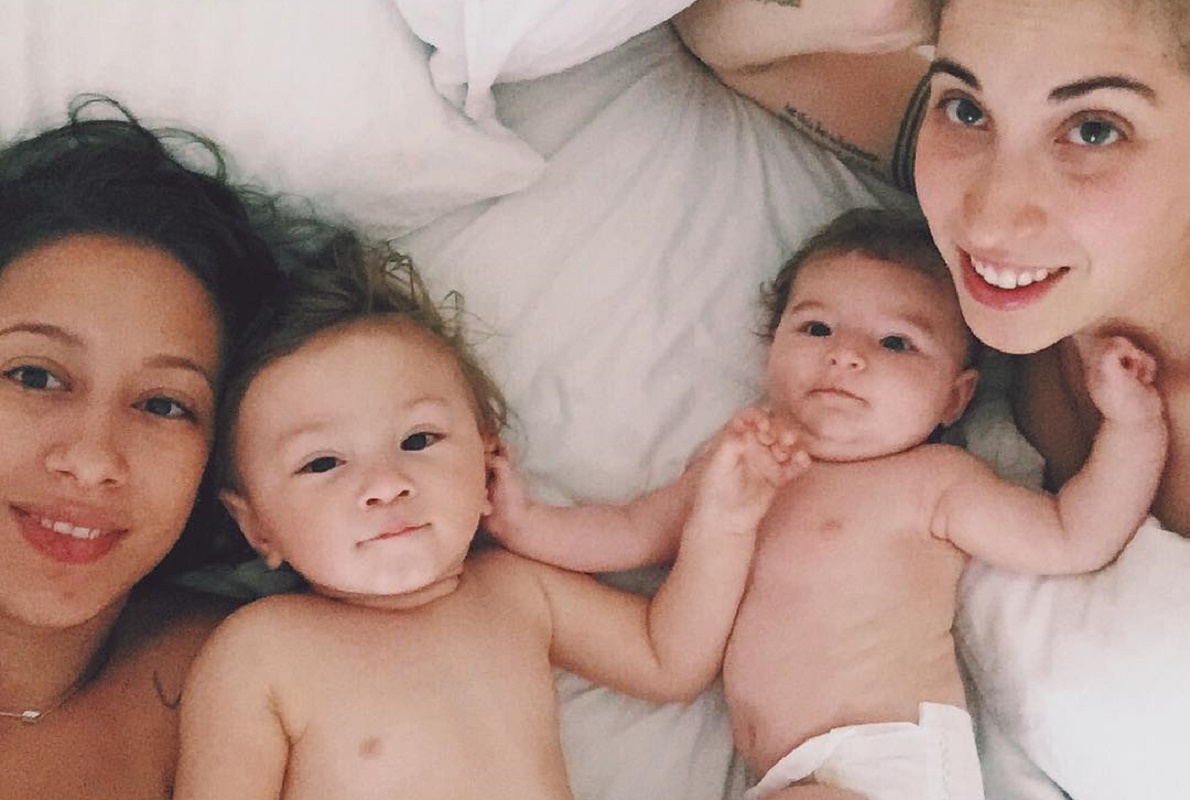
Lesbian mums
The review of three decades of peer-reviewed research by Melbourne Children’s, a paediatric teaching hospital and research institute, found children raised in same-sex-parented families did as well emotionally, socially and educationally as their peers.
Researchers said: “The findings of these reviews reflect a broader consensus within the fields of family studies and psychology.
“It is family processes – parenting quality, parental well-being, the quality of and satisfaction with relationships within the family) – rather than family structures that make a more meaningful difference to children’s well-being and positive development.”
However, the study did unearth that children of same-sex couples are damaged by discrimination from peers and the media.

Young LGBT people experienced much higher rates of psychological distress in Australia than their heterosexual and cisgender peers.
Prof Frank Oberklaid, the author of the study, said: “Young LGBTIQ+ people are much more likely to experience poor mental health, self-harm and suicide than other young people.
“Sadly, this is largely attributed to the harassment, stigma and discrimination they and other LGBTIQ+ individuals and communities face in our society,” Oberklaid said.

